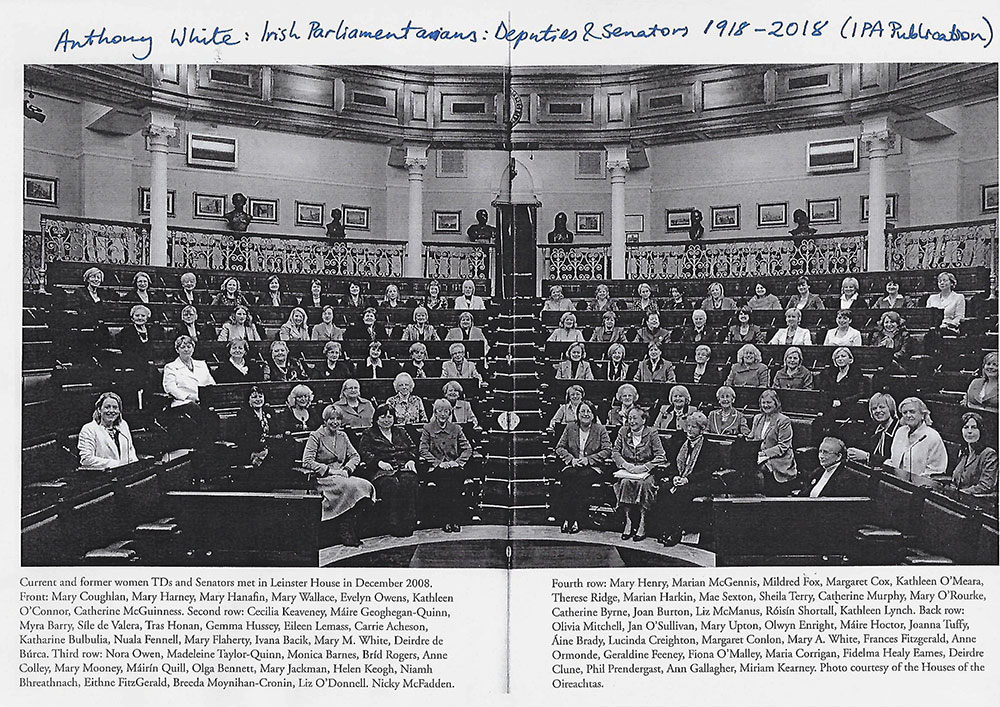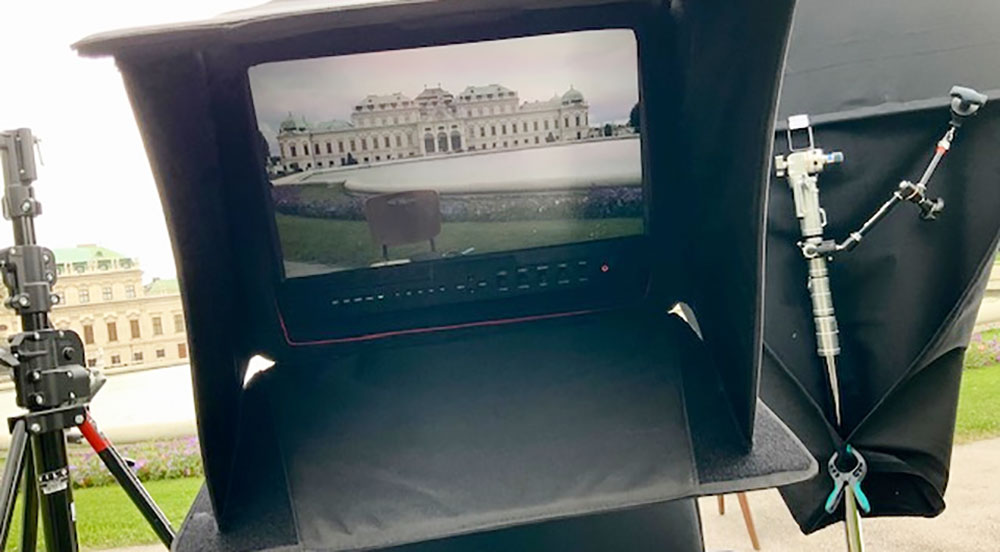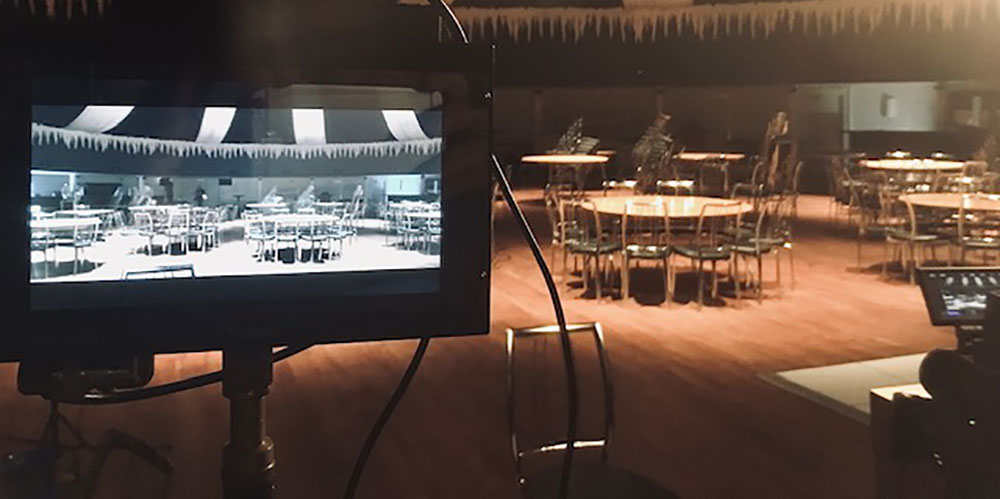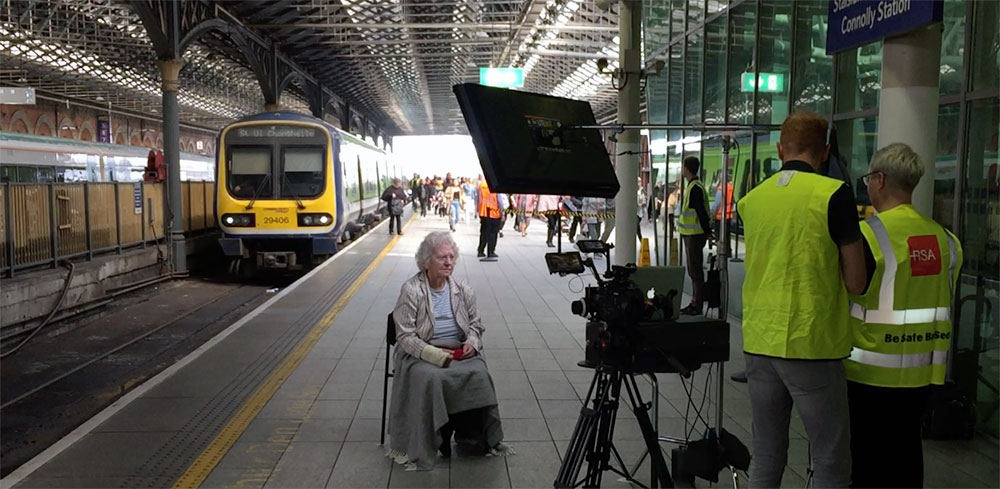
PARITAS noun. [ Latin feminine ] /pari'ta/ parity, equality, equal or equivalent. (2018 – ongoing), a new portrait series exploring Irish and Global feminist political activism, through the depiction of individuals in locations of social-historical and international political significance.

In 1896, Vienna, Austria the Upper Belvedere was a residence for Franz Ferdinand. His assassination in June 1914 contributed to the outbreak of WW1 and the collapse of the Habsburg Monarchy, post WW1, many nations instigated the right to vote for women. Trezija Stoisits, (2022) The Belvedere Museum, Vienna.
The 100th anniversary of women achieved the right to vote in Ireland (and the UK), was on Friday 14th December 2018. On this date Dunsmore filmed a video portrait of Ivana Bacik, in the location of the first Dáil Éireann (Irish Government), ‘Round Room’ of The Mansion House, Dublin. Ivana Bacik, (2018) The Mansion House, Dublin.
In 1971, members of the Irish Women’s Liberation Movement (IWLM) staged a media event. Travelled to Belfast by train, to buy contraceptives, in protest against the law prohibiting the importation and sale of contraceptives in Ireland. Nell McCafferty, (2019) Platform 2, Connolly train station, Dublin.
These portraits have not yet been exhibited and the filming location documentation represent the artworks.

Image depicts filming location for "Trezija, The Belvedere", Vienna, silent, 19 mins, 2022
Trezija Stoisits is a Austrian Green Party member, past parliamentary minister and feminist. Known in Austria for her long standing minorities advocate. She was also directly involved in the repatriation of artworks taken by the Nazis. Since December 2019, she became Head of the Executive Board of the Vienna Wiesenthal Institute for Holocaust Studies (VWI). Dunsmore filmed Trezija Stoisits portrait outside The Belvedere Museum, in Vienna which is one of the world’s first public art gallery and museum, and later held representative association with Nazi authorities attitudes towards ‘degenerate art’ and artwork appropriation.
Trezija Stoisits filmed portrait (portrait has not yet been exhibited) was made in collaboration with KunstRaum xtd Gallery, Austria. The portrait is silent and 20mins. Edition of 3 + 1 AP. 2022. Edition 1, Collection of KunstRaum xtd. Linz, Austria.

Image depicts location for "Ivana, The Mansion House", Dublin, silent, 20 mins, 2018 (portrait has not yet been exhibited)
Ivana Bacik, is the Leader of The Labour Party, (Irish). Her research interests include criminal law; criminology; feminist theory of law and equality law. She was Chairperson of the Oireachtas Vótáil 100 Committee organising a programme of events in 2018 to mark the centenary of women’s suffrage in Ireland.
The portrait of (then Senator) Ivana Bacik, embodies significant social-political change, whilst conceptually representing the 80 Oireachtas women that she brought together in 2008 and the portrait is a visual marker of the 100th anniversary of the election in which women first had the vote in Ireland and Britain.

Image depicts "Nell McCafferty on Platform 2", Connolly train station, being filmed for her silent, 14 mins, portrait, 2019
Nell McCafferty (1944 – 2024) was known as a social campaigner, a playwright and an outspoken feminist. Described as 'The fiercest feminist of her time.’ Aine Lawler, RTE, Morning Ireland, 2023.
She wrote about the church and state, their attitudes to women and the working class and, the role the British government in Northern Ireland. She was prominent in campaigns for contraception, divorce and equal pay. She was a founding member of the Irish Women’s Liberation Movement (IWLM).
In 1971, the IWLM travelled to Belfast by train to buy contraceptives in protest against the law prohibiting the importation and sale of contraceptives in Ireland. At Connolly Street Station in Dublin, where the Belfast train had returned to Platform 2, with the women on board, demonstrators chanted “let them though” and “enforce the constitution” at the customs officials. It was a landmark moment in the Irish women’s movement.
The portrait has not yet been exhibited.